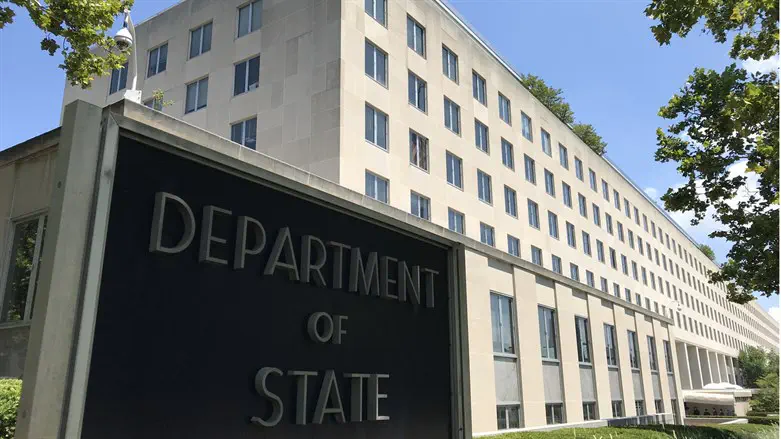
State Department spokesperson Matthew Miller said on Wednesday that the US chose to veto the UN Security Council resolution calling for an immediate ceasefire in Gaza because it failed to link between a ceasefire and a hostage release.
“The resolution does call for the release of hostages. What it doesn’t do is link the release of hostages to an immediate, unconditional ceasefire. And we have made clear throughout this process that we cannot support a resolution that calls for an unconditional, immediate ceasefire and delinks it from the release of hostages. There are still seven American citizens who are being held hostage in Gaza, and we are not going to walk away from them,” Miller said at a State Department press briefing, in response to a question from a reporter.
“And so we worked in good faith for several weeks to try to get to yes on this resolution, to try to get to a resolution that we can vote for. As you know, we have voted for a resolution in the Security Council resolution already this year that called for a ceasefire, but it called for a ceasefire with the release of hostages. And that is our position. We firmly believe in it because we want to see those hostages come home. And I would kind of turn the question around and ask, why is it that the countries pushing this resolution couldn’t actually link the two? Why they wouldn’t agree to link the ceasefire to the release of hostages. What is it to the release – what is it about the release of hostages that they wouldn’t support when linked to a ceasefire?” he added.
“It seems to us plain common sense that if there’s going to be a ceasefire, that Hamas shouldn’t get to continue to hold the hostages. And so we want to see the two linked, and that will continue to be our position. We will continue to look for ways to find consensus with other countries on the UN Security Council. But because of that language, it’s not – this resolution is not something we can support,” stated Miller.
The resolution which was voted upon called for an “immediate, unconditional and permanent ceasefire” to end the war in Gaza, irrespective of the fate of the hostages who remain in custody or whether such a ceasefire would allow Hamas to remain in power and recover from its losses to attack Israel again.
It separately called for the release of the hostages, but did not connect the issues of the hostages and the ceasefire.
14 countries voted in favor of the Algerian delegation's resolution, but the US veto defeated it.
Israel and Hamas have held several rounds of indirect negotiations, with the US, Egypt and Qatar serving as mediators, in an attempt to reach a ceasefire in Gaza and for Hamas to free the hostages it has been holding since the October 7, 2023 massacre.
The United States had been pushing an outline for a ceasefire and hostage release deal that President Joe Biden first laid out in May, but Hamas rejected that proposal and every other proposal that has been presented to it.
Recently, Egypt publicly proposed a two-day ceasefire deal in which four Israeli hostages would be released in exchange for terrorist prisoners held in Israel and in the ten days following, negotiations would be held regarding a more extensive deal.
Hamas initially said it does not support a limited timeframe of several days in which the organization would return some of the hostages and afterwards the fighting would continue. Later, sources in Hamas told the Asharq Al-Awsat newspaper that the terrorist organization is willing to consider Egypt’s proposal as well as other proposals.
Earlier this week, Biden urged G20 leaders to intensify efforts to pressure Hamas into agreeing to a ceasefire with Israel.
"I ask everyone here to increase their pressure on Hamas, which is currently refusing this deal," Biden said during his opening address at the G20 summit in Rio de Janeiro.
